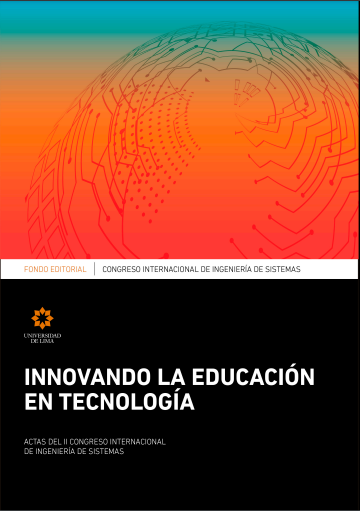Virtual educational platform selection model using fuzzy cognitive maps (FCM)
DOI:
https://doi.org/10.26439/ciis2019.5501Keywords:
fuzzy cognitive maps, FCM, virtual platform, decision-making, higher education, e-learning, distance learning, massive open online courses, MOOC, information systemsAbstract
Contemporary global trends in education favor virtual training, which offers greater versatility in terms of distance education, as it has numerous tools available for students. Online courses, currently on the rise, especially massive open online courses (MOOCs), have managed to spread knowledge to the largest number of students in a short time: a phenomenon that was not possible before. When transformation towards virtual education begins, using a virtual platform is essential. Decisions on this determine the tools that will be available, as well as the possibilities of offering semi-face-to-face courses, 100 % online courses, face-to-face courses with virtual workshops or MOOCs. For this reason, we have discovered the importance of developing an original model for selecting a virtual educational platform. For the purpose of our research, we will prepare a fuzzy cognitive map with two rounds of interviews with experts in the field.
Downloads
References
Axelrod, R. (1976). Structure of Decision: The Cognitive Maps of Political Elites. New Jersey: Princeton University Press.
Bueno, S., y Salmerón, J. L. (2008). Fuzzy modeling Enterprise Resource Planning tool selection. Computer Standards & Interfaces (30), 137-147. doi:10.1016/j.csi.2007.08.001
Clayton, M. J. (1997). Delphi: A technique to harness expert opinion for critical decisionmaking tasks in education. Educational Psychology, 17(4), 373-387. doi:10.1080/0144341970170401
Ho, C., Ke, W., y Liu, H. (2015). Choice decision of e-learning system: Implications from construal level theory. Information & Management, 52(2), 160-169. doi:10.1016/j.im.2014.07.003
Holzmüller, H. H., y Schlüchter, J. (2002). Delphi study about the future of B2B marketplaces in Germany. Electronic Commerce Research and Applications, 1(1), 2-19. doi:10.1016/S15674223(02)00003-0
Issroff, K., y Eisenstadt, M. (1997). Evaluating a virtual summer school. Journal of Computer Assisted Learning, 13(4), 245-252. doi:10.1046/j.1365-2729.1997.00027.x
Kosko, B. (1986). Fuzzy cognitive maps. International Journal on Man-Machine Studies, 24, 65-75. doi:10.1016/S0020-7373(86)80040-2
Kosko, B. (1988). Bidirectional associative memories. IEEE Transactions on Systems, Man, and Cybernetics, 18(1), 49-60. doi:10.1109/21.87054
Mirghafoori, S. H., Sharifabadi, A. M., y Takalo, S. K. (2018). Development of Causal Model of Sustainable Hospital Supply Chain Management Using the Intuitionistic Cognitive Map (IFCM) Method. Journal of Industrial Engineering and Management, 11(3), 588-605. doi:10.3926/jiem.2517
Pandari, A., y Azar, A. (2017). A fuzzy cognitive mapping model for service supply chains performance. Measuring Business Excellence, 21(4), 388-404.
Papageorgiou, E. I., y Salmerón, J. L. (2013). A review of fuzzy cognitive maps research during the last decade. IEEE Transactions on Fuzzy Systems, 21(1), 66-79.
Ramírez-Fernández, M., y Salmerón Silvera, J. L. (2015). Edutool®: Un instrumento para la evaluación y acreditación de la calidad de los MOOCS. Educación XXI, 18(2), 97-123. doi:10.5944/educXXI.13233
Rovai, A., Ponton, M., Derrick, M., y Davis, J. (2006). Student evaluation of teaching in the virtual and traditional classrooms: A comparative analysis. Internet and Higher Education, 9(1), 23-35. doi:10.1016/j.iheduc.2005.11.002
Salmerón, J. L., y López, C. (2012). Forecasting risk impact on ERP maintenance with augmented fuzzy cognitive maps. IEEE Transactions on Software Engineering, 38(2), 439-452. doi:10.1109/TSE.2011.8
Tarhini, A., Hone, K., y Liu, X. (2014). The effects of individual differences on e-learning users’ behaviour in developing countries: A structural equation model. Computers in Human Behavior, 41, 153-163. doi:10.1016/j.chb.2014.09.020
Tornese, F., Verriello, R., Gnoni, M., Mossa, G., y Mummolo, G. (2017). Circular economy strategies for electric and electronic equipment: a fuzzy cognitive map. Environmental Engineering and Management Journal, 16(8), 1807-1817. doi:10.30638/eemj.2017.197






